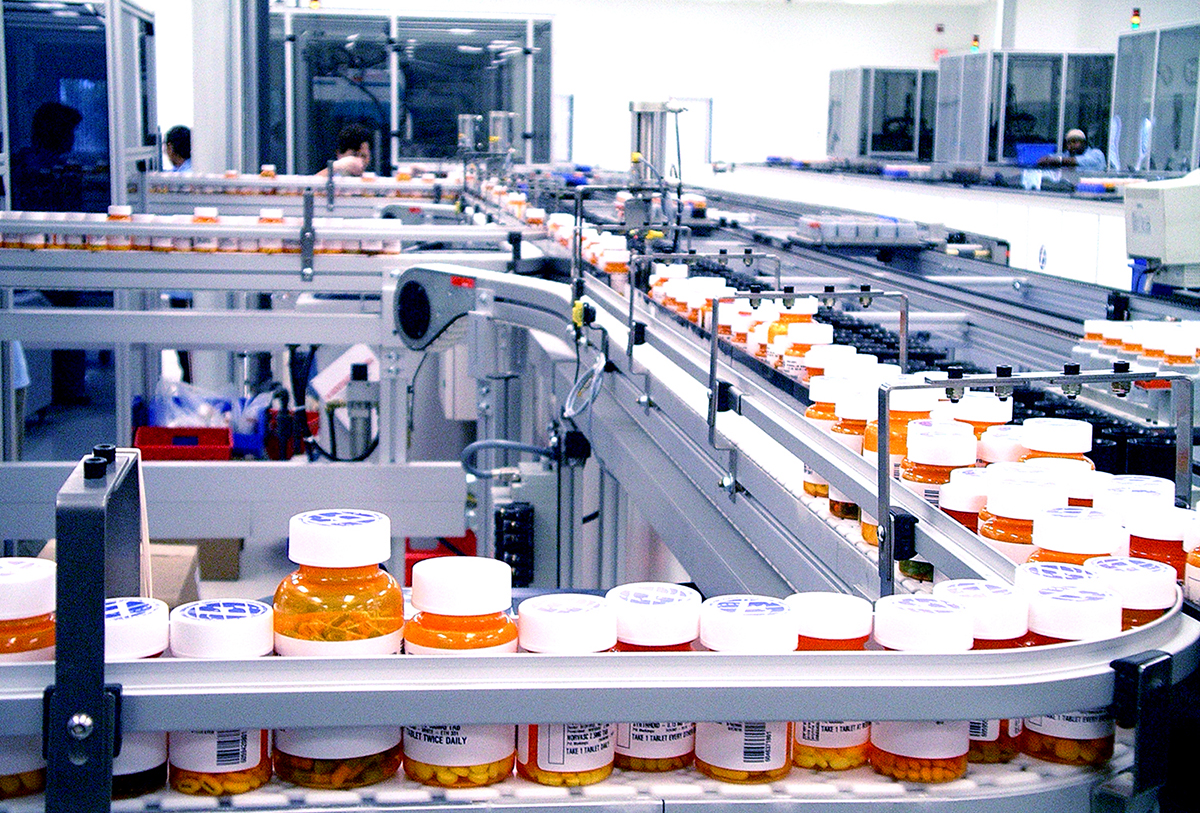Technology is key to Express Scripts delivery
- November 23, 2016
- By Boeing Center for Supply Chain Innovation
- 2 minute read

Boeing Center members had the privilege of touring Express Scripts’ automated prescription fulfillment center and analytics research lab on November 15. The new cutting-edge Technology and Innovation fulfillment center, located in north St. Louis, is one of five such facilities in the country and dispenses up to 110,000 prescriptions each day.
The center is operational 21 hours per day, six days per week, and is almost entirely automated, with the exception of a few humans (around 400 employees in various roles) to make sure that everything runs smoothly. And everything does, indeed, run smoothly.

Each pallet of prescription-filled bottles contains a radio-frequency identification (RFID) tag that allows the contents to be tracked and sent to the appropriate location. Then, each bottle has its photo taken to ensure precision, and an ultrasound scan measures volume displacement. Before the scripts are shipped out, computer algorithms calculate “porch time,” or distance, traffic, and weather conditions used to determine how much ice and/or gel should be used if the package needs to remain within a certain temperature range.
These quality assurance measures and state-of-the-art technology result in a 99.996% accuracy rate when filling prescriptions bottles, which are distributed to over 70,000 pharmacies all over the United States.
Adjacent to the fulfillment center was the state-of-the-art analytics research lab. Using the data analyzed in the lab, Express Scripts saves its 85 million customers more than $2 billion each year. One way they are able to reduce cost is by negotiating prescription prices with pharmaceutical manufacturers and determining which medications will be included on their formulary, or list of drugs covered under a benefit plan. They also take into account the prescription price index (PPI), which they calculate using data on the number of prescriptions filled per year, as well as the cost paid by benefit plans and consumers. The PPI gives them further insight into price trends of name brand and generic drugs.
The lab also contained a prototype of a vending machine designed to dispense drugs on the spot within a matter of minutes. The machines will use demographic and location information to determine what drugs to stock, and contain a phone that can be used to call a pharmacist. Another innovation in the works is a laser system that etches custom messages on pill bottle caps. These messages range from reminders about renewing prescriptions to invitations to download prescription management mobile apps. The personalized messages are expected to be a welcome update to the age-old “Push Down & Turn to Open” caps.
We are grateful to Express Scripts for inviting us to their campus to see their cutting-edge technology, especially Jan Burkett who organized the event and Susan Lanctot and Kyle Amelung, our tour guides for the evening. Stay tuned to the Boeing Center digital network (@theboeingcenter) for more fresh supply chain content!
Contact Us
For assistance in finding faculty experts, please contact Washington University Public Affairs.
Monday–Friday, 8:30 to 5 p.m.
Sara Savat, Senior News Director, Business and Social Sciences
314-935-9615
sara.savat@wustl.edu
Kurt Greenbaum,
Communications Director
314-935-7196
kgreenbaum@wustl.edu